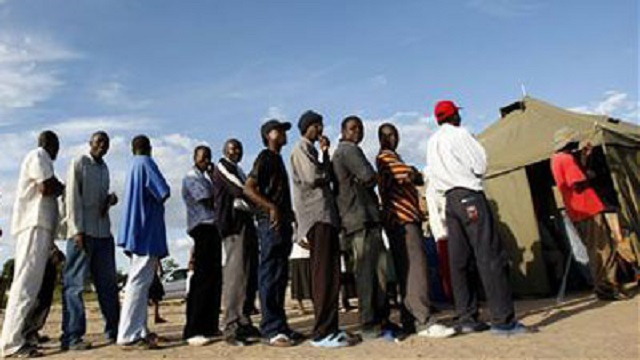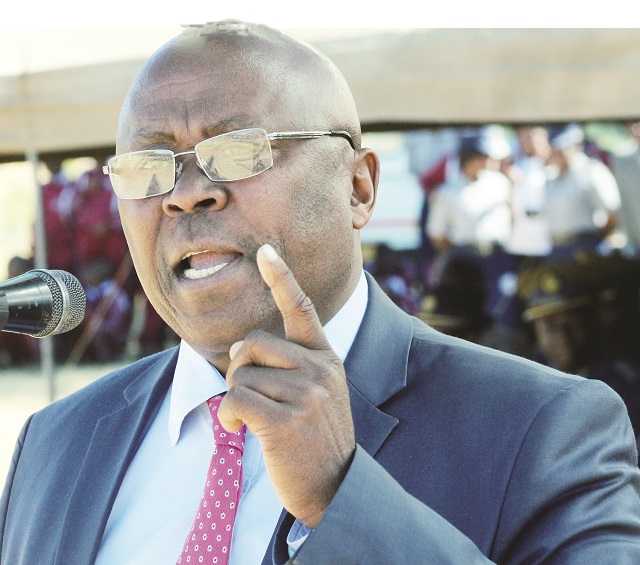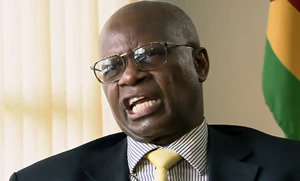Let’s hold free and fair elections

Saul Gwakuba Ndlovu
We should each one of us appreciate that thousands of lives were lost and millions of dollars’ worth of property was destroyed in the liberation struggle to achieve freedom to choose our own representatives in various institutions, from village to Parliamentary level Zimbabwe is preparing to hold national elections sometime next year, and some political parties have more or less entered into the electoral mode as they hold rallies in different parts of the country.
The 37-year-old nation has held eight general elections since it was born in 1980. Many, or at least some, of those elections were characterised by inter-party violence which caused some deaths or injuries.
The ruling party, Zanu-PF, later propagated tolerance and inter-party peace, particularly a few years before the death of Vice President John Landa Nkomo who initiated and promoted the slogan “Peace begins with you!”
That message resonated well throughout the country, and seemed to generate a peaceful political environment. There were, however, some cases where inter-party violence reared its ugly head as several people were killed just before and during general or by-elections.
Zimbabwe was born by barrels of freedom fighters’ guns and blood dating back to 1893 when the Ndebele King Lobhengula’s gallant forces fought against Cecil John Rhodes’ mercenaries.
They were defeated not because they lacked courage or committed personnel but because of their technologically inferior weapons.
It was a case of spears versus sub-machine guns. The outcome was more or less a foregone conclusion.
In 1896-97, the nation rose up again to liberate itself and, once more, the minority white settlers prevailed over the black majority because of better arms.
In both those occasions, the African people wanted their freedom. They thereafter lay more or less low until the early 1950s when they started preparing for a protracted armed liberation struggle which brought indepdence in 1980.
“Freedom” was the objective of that struggle. That “freedom” was to be expressed and enjoyed through an electoral process in which each adult would have a vote hence the slogan “one man, one vote!”
We later modified it to be “one person, one vote” and explained that by “person” we meant an “adult”.
That vote is an inalienable right of every adult Zimbabwean, and should be cast in free and fair circumstances without let or hindrance. The voter must be unconditionally free to vote for a candidate who, in turn, should be unconditionally free to campaign without fear or pressure from any source or person.
That is what every freedom-fighter, living or dead, struggled for.
However, the eligibility and selection of electoral candidates are an internal process of respective parties, but that involves the “one person, one vote” practice as that is fundamental to every type of democracy: social democracy, Christian democracy, guided or participatory or whatever description one gives that ideology.
We should each one of us appreciate that thousands of lives were lost and millions of dollars’ worth of property was destroyed in the liberation struggle to achieve freedom to choose our own representatives in various institutions, from village to Parliamentary level.
It is a very serious crime for one to intimidate a voter or voters to support one’s preferred electoral candidate.
The Constitution of Zimbabwe highlights freedom of association as an inalienable right of every Zimbabwean.
The national constitution guarantees the right for every Zimbabwean to stand for council or Parliamentary elections.
We fought for a free Zimbabwe represented in Parliament by its citizens without any consideration of their racial or tribal origins, or their religious or any other cultural practices and beliefs, and/or their economic acquisition, or their social status.
The country’s law enforcement arms are constitutionally apolitical, and should thus impartially uphold and apply the land’s laws. They must protect without fear or favour all and sundry during the elections.
The judiciary, meanwhile, should maintain its highly professional standards by interpreting and applying the country’s election laws as they are chapter and clause in order to arrive at untainted justice.
Zimbabwe attained freedom through, blood, sweat and tears; its elections must therefore uphold high standards of integrity, freedom and fairness. Neither fear nor coercion has any role in elections of a country that sacrificed as much as Zimbabwe to achieve social, economic justice and basic human rights.
Saul Gwakuba Ndlovu is a retired, Bulawayo-based journalist. He can be contacted on cell 0734 328 136 or through email. [email protected]











Comments